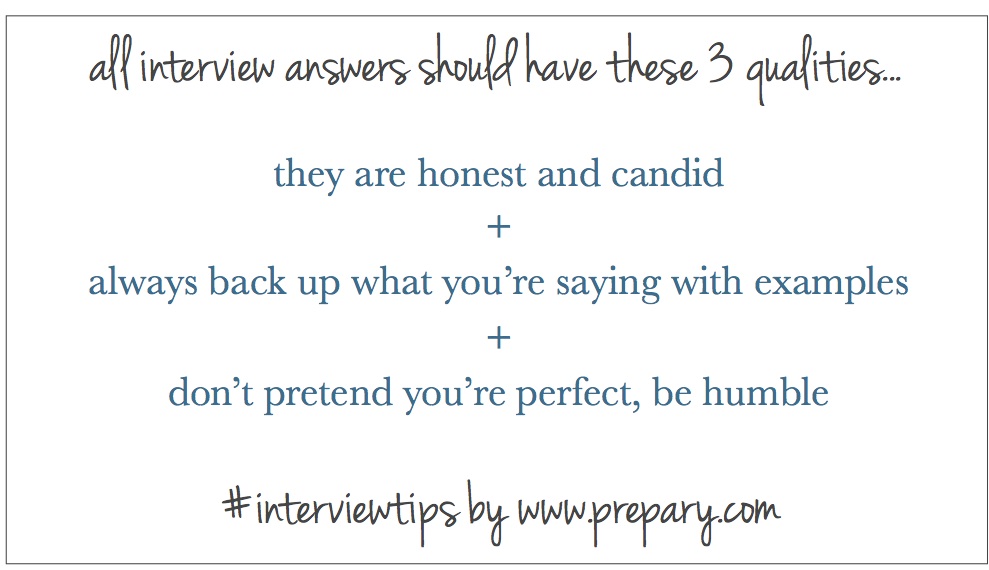If you go on 10 interviews this year, I can almost guarantee each one will be very different from the next. Every company, interviewer, and recruiter approaches the interview process in a slightly different way and will have different questions they will ask. Of course, there are a common set of interview questions often used when conducting a “behavioral interview” (meaning, not an interview on technical skills).
I’ve asked many of those common questions myself because they really are a good guide for the conversation that will tell you a lot about a person and how they work. Regardless of what you are saying as you answer these questions, here are 3 main qualities that your answers should always have.

- They are honest and candid answers – the best way to succeed in an interview is to be the best possible version of you (and no one else). Represent your experiences honestly and accurately and be forthcoming about what you know and don’t know. At the end of the day, you’re doing yourself (and the company) a big disservice by pretending to be someone you’re not – it all comes out in the end anyway.
- Always give examples – Whether you are asked to or not, always back up your statements with examples. It shows a lot more depth and is SO much more convincing. For example, if I say “I’m good at using data to convince people to adopt new processes” the interviewer just has to take my word for it. But if I then give an example of a concrete time when I did that, they are going to have context, more color, and are much more likely to really believe me.
- Don’t pretend you’re perfect – An important part of answering these questions is showing self awareness and humility. I don’t think anyone wants to work with someone who thinks they are 100% perfect so make sure you show that you’re human. I think it’s more of a red flag to have no flaws (versus giving an honest answer when that question is asked).
The world of job searching and interviewing is full of nuances but answers with these 3 qualities will be well-received across the board. Ultimately at the end of the day interviewers and companies are just trying to find the people who will best fit within their organization and who will be most capable of doing the work. Asking common questions helps them get that information, and the more genuine, deep, and humble your answers are, the better!





